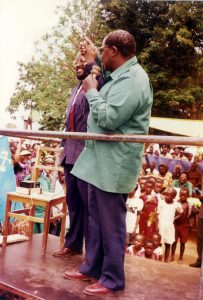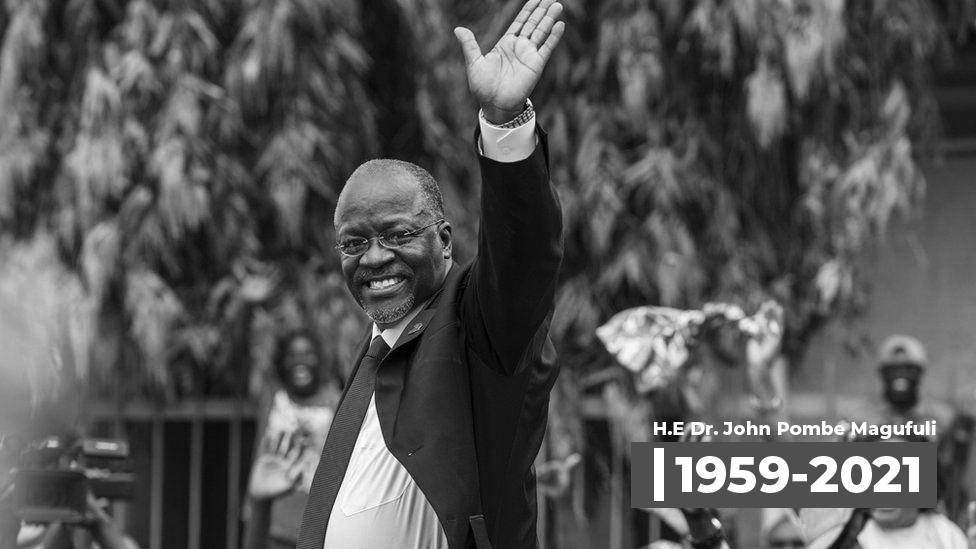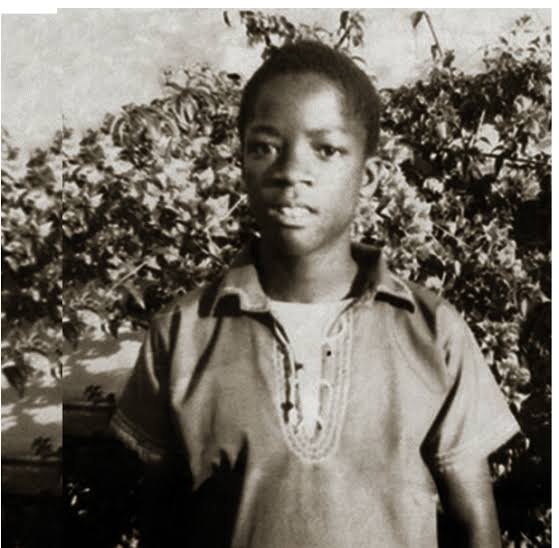A valuable interrogation of the legacy of the late president John Pombe Magufuli, the immediate president of Tanzania, is likely to be controversial, intoxicating and polarising because, during his five-year and five-month reign, the nation was torn apart in almost two diametrically opposite aisles that could neither agree nor compromise on his vision, work ethic and management style.
To Magufuli’s critics, sceptics and cynics alike, he was a brutal dictator who had eviscerated the rule of law and good governance, parlaying development prioritization as his cunning modus operandi for his survival. Still, he was pragmatic, a realist and an idealist to his passionate base, merging and invoking Nyerere idealism and Moringe Sokoine’s no-nonsense demeanour.
Before properly investigating his legacy, we are confronted with issues of his bildungsroman trajectories, which remain fuzzy and arcane. We say so because while his childhood has been speculated to date, we do not know where he was born, albeit we know the schools he attended. We know all about his mom, but we do not know who his dad was and whether he was Tanzanian bonafide!
Most of the information available in the public gallery personally shared by himself suggests he was born in Bukoba Municipality as it is today established by law, but in which village or street where he was born remains arcane, hence, a glittering gem to be unearthed another day.
From his oral confessions during his presidential campaign of 2020, he had claimed that his father was from Bukoba, where he was born and, that his father had chased his mother and himself from their home, that they fled to settle in Chato. It is a fascinating narrative but has not yet been verified by independent sources. Since it was publicly shared during campaigning, one may not be harangued for suspecting it was a story concocted to harvest votes in a country where identity politics of affection and ethnic pride still run amok.
Deprived of his childhood facts, the grapevine has been busier churning accusations and counter-accusations of his citizenship, with Magufuli detractors claiming he was an illegal immigrant from Burundi who forged his citizenship by association with the ruling party, Chama cha Mapinduzi (CCM), but to his supporters, there was no evidence to question the integrity of his citizenship and that those who suggest otherwise were an upshot of sour grapes.
For obvious reasons, until his dad was known, the controversies surrounding his citizenship remained unresolved and still valid for discernment because childhood upbringing impacts how humans develop habits, beliefs and stances which shape their future conduct. That means the more clarity we have on his upbringing, the more we are likely to comprehend why he acted the way he did and a shortage of that information deprives analysts of the tools we need to figure out his whole caboodle.
However, despite being robbed by his childhood facts to shape our discussion on his biography, its deficiency is not a reason not to peek at the bigger picture to decipher a man behind the mirror.
His rise to national political leadership was a matter of luck and sheer grit on his part to fulfil his political ambitions. After his second stab at a parliamentary seat for Chato in 1995 and being successful, the then president Benjamin Mkapa appointed him to a junior ministerial docket for works and transport, a portfolio he held for five years until he was promoted to a full minister in the same ministry in 2000.

His meteoric rise to the acme of Tanzanian politics was attributed to the strong-arm tactics against the alleged highway squatters, where most politicians perceived the gambit as a political bridge burner. Magufuli gambled that the expansion of Morogoro Road did not need to incur extra expenses of compensating the squatters. The victims of his decision marched to courts to seek judicial redress. Still, they were unsuccessful in rendering Magufuli a substantial political victory, which would catapult him among who and who in the Tanzanian political fraternity.
During the ten-year reign of the then president Jakaya Mrisho Kikwete, Magufuli was demoted to a lesser Minister of Livestock and Fisheries from 2008 to 2010 ministry of fisheries, where he made a name for himself for burning illegal nets which were catching smaller fishes, endangering the survival of the fish.
His decision was also controversial because his sworn political nemesis raised red flags that the smoke was polluting the air, and the benefit-cost ratio of burning the illegal nets and the environmental damage made the whole exercise futility. But, to his adoring fans, a message ought to be sent loud and clear: Small-sized nets were intolerable and should bear a maximum penalty to their owners to spur deterrence.
Magufuli was long in applying statistics to make his policy cases. Still, the accuracy of those data raised another commotion with his protagonists beaming no evil there. At the same time, his antagonists would have none of that, pointing out that cooked data was enticing wrong policy decisions.
Perhaps the most intriguing part of his legacy came in 2015 during the CCM sieving process of her presidential aspirants. CCM filtering system of picking her leaders in the government is tooled and repurposed to ensure and secure continuity that culminates into dumping potential cradle shakers.
In this light, few expected the “maverick Magufuli” to survive such a brutal process, which aimed to reject revolutionaries like himself in favour of sobriety: insurance to the maintenance of the status quo. Many variables came to play in His favour, and for the first time in the CCM’s history, departure from the past was perceived as a good omen to win the elections. As a result, Magufuli emerged triumphant at the expense of more senior politicians like the ex-Premier Edward Lowassa, whose name was chopped in the preliminary evaluation on ethical considerations.
Questionable Election Victories Vs Surprising Policy Shifts
With Tanzanian elections failing to uphold the least of international standards to free, fair, credible and verifiable elections, the declaration of Magufuli as a winner of 2015 was met with suspicion and disquiet of massive rigging and his closest rival, Edward Lowassa, had much to grumble sounding out he was robbed of a clear victory.
The acceptable margin of his victory in 2015, unlike in 2020, seems plausible. Still, the polling station’s voting results were never displayed publicly to show how constituent aggregates arrived, leaving doubts about who is voting in Tanzania between the powerless voters and those wielding the reins of power.
In the first stint of his presidency from 2015 to 2020, his most reckoning decision was to decline to legislate the proposed constitutional amendment, which had gobbled billions of shillings citing in its preparation. Magufuli claimed his priorities were in development and the rule of law could wait! This was a shock because during campaigning and in the CCM manifesto, the legislation of an amended constitution was a matter of priority. Still, this change of heart was deeply disappointing.
The real push behind a new constitutional amendment was an acknowledgement that poorly instituted means of accountability were behind nonpareil socio-economic disparities and the sluggish pace of development. Without constitutional checks and balances, one would sweat in sealing leakages of public funds and misplaced priorities, truncating the capability of the nation to mobilize resources for good national causes through primitive accumulation as most nations have trudged through that treacherous path.
Another notable feature during his first term of presidency was his refusal to obey WHO guidelines to slow COVID-19 infections. He advocated local means to fight the global pandemic, questioning the laboratory testing methodologies and, at times, loudly harping his government was a victim of sabotage!
He received both commendation and criticism for his stubbornness, and one TV channel in Kenya (the Citizen) had to learn how to spell “OUCH” the hard way after airing a clip cajoling what it termed “Ukaidi wa Magufuli.” The TV channel was forced to apologise to him every day during peak hours for seven days! We must acknowledge and concede his stand against enforcing lockdowns was popular in Tanzania and elsewhere.
In his second term, Magufuli was accused of outright stealing the elections, and even international observers doubted the margin of victory. It was becoming abundantly clear that Magufuli’s hostility to a revised constitutional order was due to his phobia of accountability to voters. He seemed determined to usurp and prolong his stay in power illegally.
Magufuli will perhaps be remembered for his resolve to address a myriad of infrastructural handicaps. However, he will also be reprimanded for making huge mistakes like investing lots of money in jumbos from Boeing despite not having a domestic demand to support that prohibitive initiative. Magufuli banned pregnant gals from attending schools without coming to terms with the fact that most of those pregnancies were an outcome of statutory rape, further that a right to education was a human right that shouldn’t have been brandished as a punishment to the victims of rape.
Magufuli’s reluctance to fix the election laws unwittingly protected thieving politicians and civil servants whom he had rebuked regularly for vices they were committing without letup or consequences.
Magufuli tried to address the lop-sided natural wealth laws. Still, without constitutional principles to guide ordinary laws, it is no wonder his successors have been making headway to repeal his legislative epics.
Magufuli made a herculean effort to force Barrick Gold to share the surplus value of their mining activities with his government. Still, his efforts raised red flags of whether he was self-seeking when nothing substantial changed, and all his earlier claims of poor Tanzanians were left to pick a rotten end of the stick were left unattended, leaving unanswered questions of why there was a sudden change of heart to preserve the status quo ante?
Read the Controversial SAGA here: “Tanzania-Winshear Settlement: Did the $30M Payout Signal Desperation or Diplomacy?”
This terse interrogation of the Magufuli ten-year rule plus legacy is not by any stretch of imagination bragging to be its compendious inquest but rather a thought-provoking effort to spark a fair-minded discussion of the legacy of this man behind a mirror that may contribute helpful knowledge in a diligent attempt to comprehend why Tanzania is where she is today, and whether under different development paradigm may have fared much better with the richness of the resources God has endowed her with which regrettably are not trickling down to Hoi polloi.
You may also read Tanzania’s Strategic Projects Unveiled for 2022 and 2023: A Closer Look at Tanzania’s Priority Areas.



Nonsense..You enjoy tarnishing his name… for what benefits… for who… for some reason.. the author believe he has a sole authority to write this nonsense and share with the world .. go to the street and ask Tanzanians in the rural and village alike… what they think of Magufuli